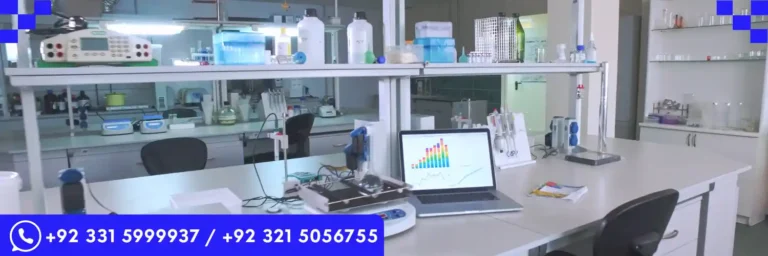The ICTQual AB Level 5 Diploma in Quality Control Automotive is an advanced qualification designed for professionals seeking to enhance their knowledge, skills, and competence in quality control within the automotive industry. This diploma equips learners with in-depth understanding and practical methodologies essential for maintaining and improving product and process quality in automotive manufacturing and assembly operations.
With the growing complexity of automotive systems and the demand for zero-defect manufacturing, quality control has emerged as a critical area. This course provides a comprehensive framework for learners to engage with real-world quality standards, Six Sigma techniques, inspection methodologies, ISO/TS 16949 compliance, and root cause analysis—all tailored to the unique demands of the automotive sector.
Learners undertaking this program will gain theoretical and applied knowledge that positions them as effective quality professionals, auditors, and leaders capable of supporting continual improvement initiatives and reducing operational inefficiencies across automotive production lines.
Course Overview
The Level 5 Diploma in Quality Control Automotive aims to bridge the gap between technical proficiency and quality management expertise. It emphasizes both quality assurance principles and the operational aspects of quality control tailored specifically for the automotive industry.
This diploma is structured to provide learners with a detailed understanding of industry standards such as ISO 9001 and IATF 16949, statistical quality control techniques, product lifecycle inspection protocols, non-conformance handling, and corrective action procedures. The course further focuses on integrating quality management systems into day-to-day production and aligning them with customer satisfaction goals.
Whether working with OEMs, Tier 1 suppliers, or aftermarket service providers, professionals completing this program will be well-equipped to take on supervisory or managerial quality assurance roles in automotive environments, ensuring product safety, compliance, and performance.
Study Units
This qualification, the ICTQual AB Level 5 Diploma in Quality Control Automotive, consists of 10 mandatory units.
Advanced Quality Control Systems in Automotive Engineering- International Automotive Standards and Compliance Frameworks
- Statistical Process Control and Data Analysis in Manufacturing
- Non-Destructive Testing (NDT) in Automotive Components
- Advanced Inspection of Powertrain and Electrical Systems
- Lean Manufacturing and Continuous Improvement in Automotive Quality
- Supplier Quality Management and Audit Procedures
- Failure Mode and Effects Analysis (FMEA) in Automotive Processes
Health, Safety, and Environmental Practices in Quality Assurance- Digital Tools and Automation in Automotive Quality Control
Course Benefits
- Gain expert-level knowledge of automotive quality control practices.
- Learn to implement and manage international quality standards like IATF 16949.
- Understand advanced inspection techniques and tools such as SPC, FMEA, and 5 Why Analysis.
- Improve your ability to identify, analyze, and resolve quality-related issues efficiently.
- Become proficient in supplier auditing and quality improvement strategies.
- Enhance your career prospects in the global automotive manufacturing sector.
- Equip yourself with skills required for quality leadership and process optimization roles.
Course Learning Outcomes
Upon successful completion of this course, learners will be able to:
- Interpret and apply industry-specific quality control standards.
- Perform comprehensive inspections and monitor production quality.
- Conduct data-driven analysis using statistical tools for process control.
- Identify quality issues and implement effective corrective and preventive actions.
- Lead internal and supplier audits to ensure ongoing compliance.
- Align quality control functions with organizational performance targets.
- Implement lean practices to minimize waste and optimize product quality.
- Demonstrate understanding of health, safety, and regulatory frameworks in automotive QA.
Who Is This For?
This course is ideally suited for:
- Quality control professionals working in the automotive industry
- Engineers and technicians aspiring to transition into quality management roles
- Supervisors and line managers overseeing production or assembly lines
- Automotive manufacturing professionals seeking IATF/ISO compliance knowledge
- Graduates of automotive or engineering-related disciplines seeking specialization
- Consultants and auditors working with Tier 1 and Tier 2 automotive suppliers
Entry Requirements
To enroll in the ICTQual AB Level 5 Diploma in Quality Control Automotive, learners should ideally meet the following criteria:
- A Level 4 qualification in a related field (e.g., engineering, automotive technology, quality assurance)
- OR relevant work experience in the automotive industry (minimum 2 years recommended)
- Good command of English, both written and spoken, to understand technical material
- Basic understanding of industrial processes and quality systems
Who Can Enroll?
This program is open to:
- Domestic and international learners with relevant educational or professional backgrounds
- Working professionals aiming for career progression in automotive QA/QC
- Organizations seeking to upskill their quality teams through structured learning
- Recent graduates seeking to specialize in a high-demand sector of the automotive industry
Future Progression
Successfully completing the ICTQual AB Level 5 Diploma in Quality Control Automotive opens the door to a wide range of academic and professional advancement opportunities. Learners can use the knowledge and qualification gained to pursue higher education, take on more senior roles in quality management, or transition into specialized areas within the automotive sector.






